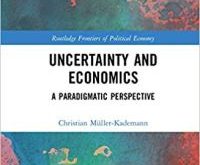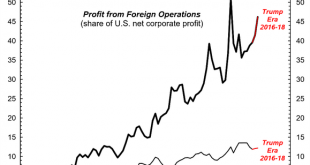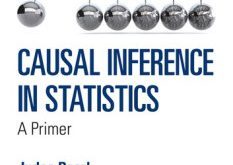from Dean Baker It is popular for people, especially economist-type people, to claim that technology has been a major driver of the increase in inequality over the last four decades. This view is very convenient for those on the winning side of the inequality divide, since it implies that the growth in inequality was largely an organic process independent of government policy. Inequality might be an unfortunate outcome, but who would be opposed to the advance of technology? However...
Read More »Three analytical questions that do not arise in standard neoclassical economics
from Herman Daly and RWER issue #90 Regarding quantification ecological economists distinguish growth from development. Growth is increase in size by assimilation or accretion of matter – it is quantitative. Development is qualitative improvement in design, priorities, or purpose. Growth is easier to measure than development, but development is more important for the future. Sustainable development, so-called, is qualitative improvement without quantitative growth in scale beyond...
Read More »Uncertainty in economics
from Lars Syll Not accounting for uncertainty may result in severe confusion about what we do indeed understand about the economy. In the financial crisis of 2007/2008 the demon has lashed out at this ignorance and challenged the credibility of the whole economic community by laying bare economists’ incapability to prevent the crisis … Economics itself cannot be regarded a purely analytical science. It has the amazing and exciting property of shaping the object of its own analysis. This...
Read More »Breaking the national envelope
from Shimshon Bichler and Jonathan Nitzan and RWER issue #90 On the whole, then, the global decline of so-called American firms is not an accounting gimmick or an exchange-rate artefact. It is a real process with real causes and real consequences. And paradoxically, this decline is intimately related to a seemingly opposite process: the growing dependency of these very “American” firms on foreign operations. This latter dependency is shown in Figure 4. The top series measures the share of...
Read More »The awakening of an econ student
from carmeloferlito I became an economist by mistake. The malicious will say that you can deduce it from the quality of my writings. I like to believe in the bizarre paths of Destiny on which the flights of human liberty stumble along. Here I would like to link my personal experience – of little interest to the reader – to the far more interesting subject of the ongoing debate in economic science. Indeed, as is well known, particularly since the crisis began in 2007, a certain...
Read More »Anti-Cash-Alliance suffers setback in their home-town New York
from Norbert Häring The Better Than Cash Alliance (Visa, Mastercard, Citibank, Bill Gates, USAID) coordinates the global war against cash from New York. Now, the city council of the headquarters of the Alliance has decided to oblige all brick and mortar stores and restaurants to accept cash. The justification of the regulation is a low blow for the alliance’s financial inclusion propaganda. According to a USA-Today report, retail stores, restaurants, and bars will have to accept cash in...
Read More »On causality and econometrics
from Lars Syll The point is that a superficial analysis, which only looks at the numbers, without attempting to assess the underlying causal structures, cannot lead to a satisfactory data analysis … We must go out into the real world and look at the structural details of how events occur … The idea that the numbers by themselves can provide us with causal information is false. It is also false that a meaningful analysis of data can be done without taking any stand on the real-world causal...
Read More »Political Economy?
from Peter Radford “American economics harbors fierce political debates over theory, methodology, and policy. In practice and in comparative perspective, however, the main trend over the course of the twentieth century has been the standardization of training as well as a homogenization of evaluation criteria that has marginalized nonorthodox approaches. After institutionalism was dethroned by the rise of mathematical economics and more politically challenging forms of intellectual...
Read More »Experiments in social sciences
from Lars Syll How, then, can social scientists best make inferences about causal effects? One option is true experimentation … Random assignment ensures that any differences in outcomes between the groups are due either to chance error or to the causal effect … If the experiment were to be repeated over and over, the groups would not differ, on average, in the values of potential confounders. Thus, the average of the average difference of group outcomes, across these many experiments,...
Read More »A stock market boom is not the basis of shared prosperity
from Thomas Palley The US is currently enjoying another stock market boom which, if history is any guide, also stands to end in a bust. In the meantime, the boom is having a politically toxic effect by lending support to Donald Trump and obscuring the case for reversing the neoliberal economic paradigm. For four decades the US economy has been trapped in a “Groundhog Day” cycle in which policy engineered new stock market booms cover the tracks of previous busts. But though each new boom...
Read More » Real-World Economics Review
Real-World Economics Review




